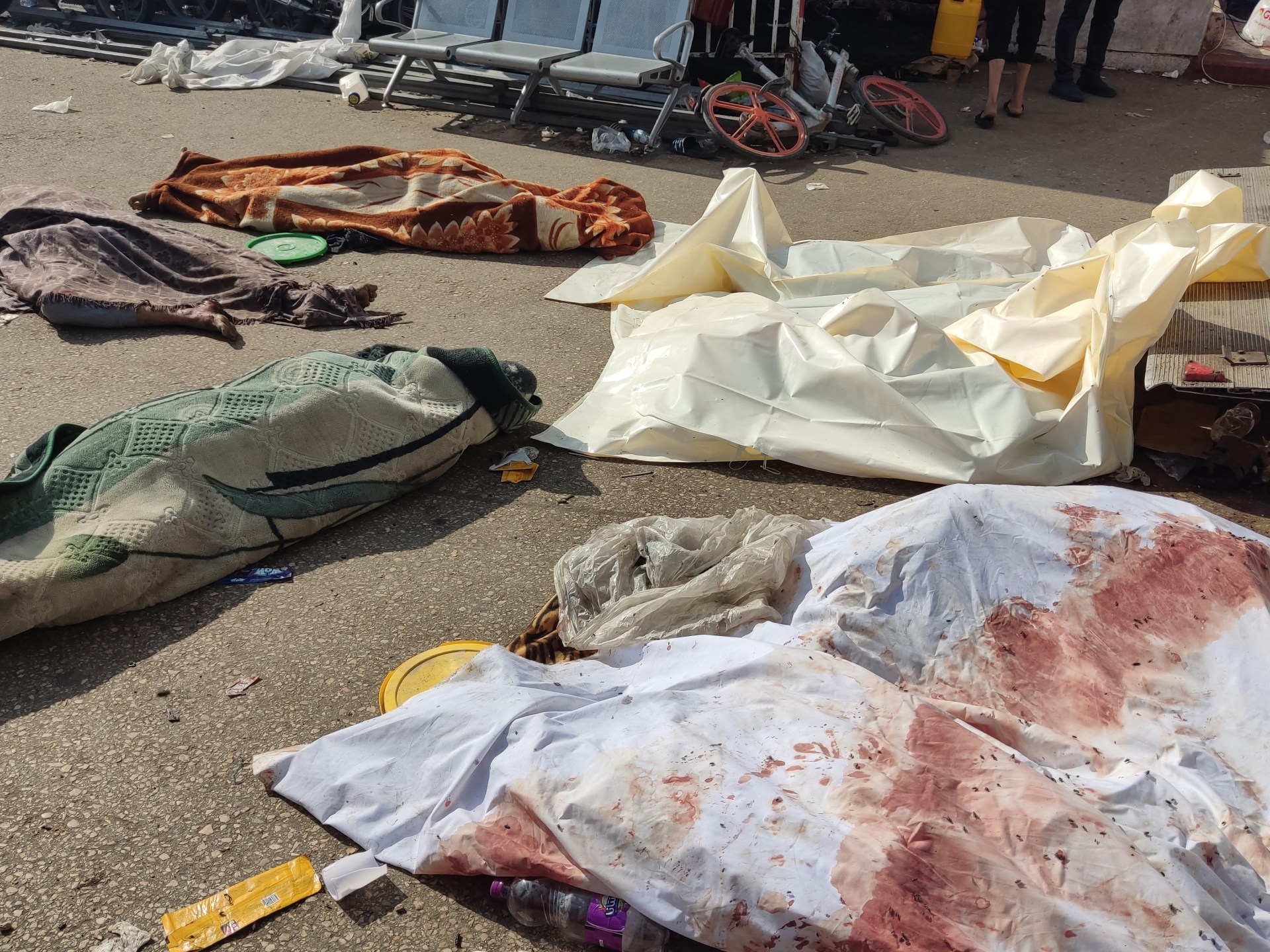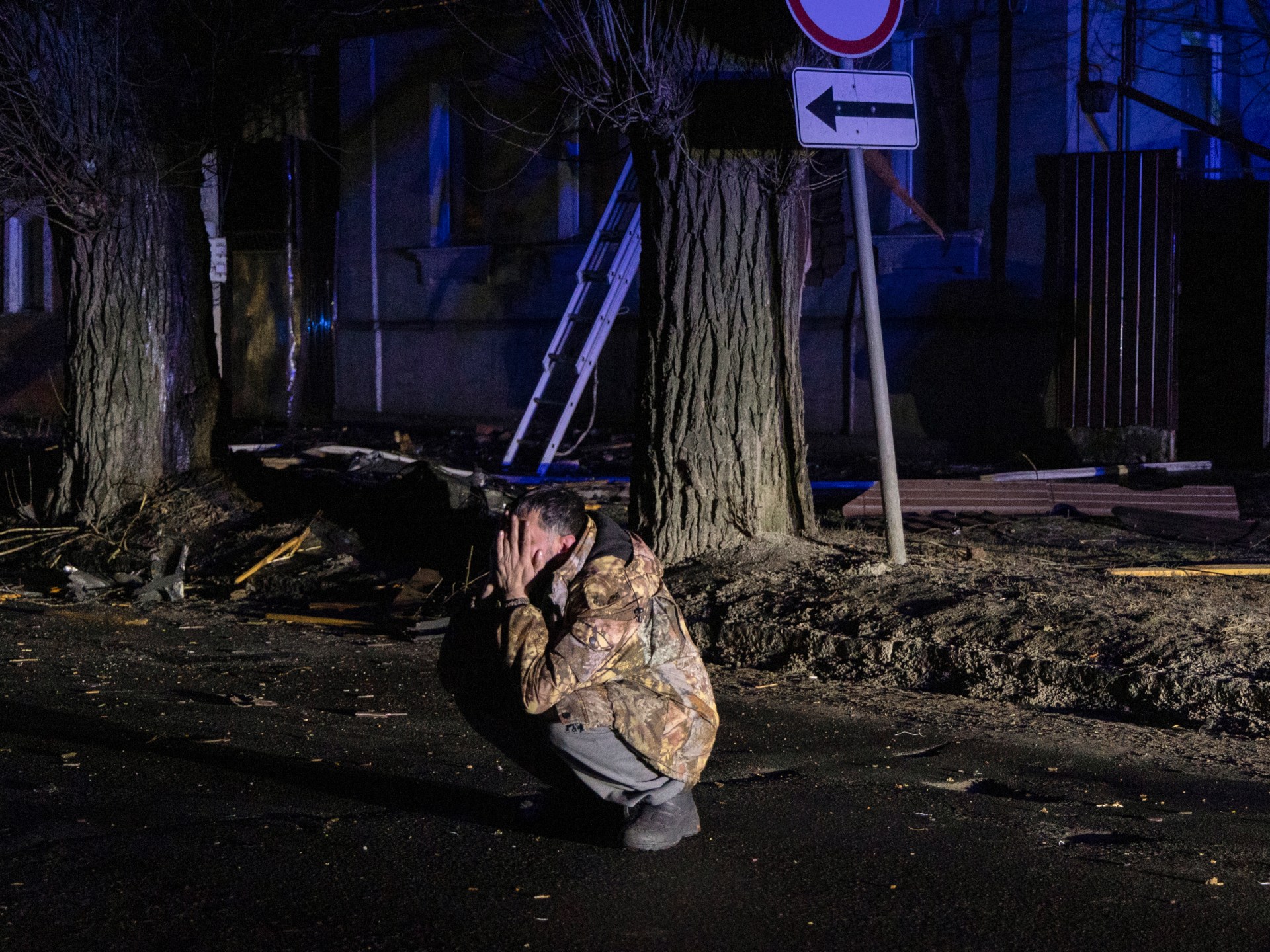
Prime Minister Benjamin Netanyahu said Israel was “prepared for a very intensive operation” along the border with Lebanon, where there has been an almost daily exchange of fire between Israeli troops and Hezbollah fighters for nearly eight months.
Fighting between Israel and the Lebanese armed group, an ally of Hamas, has intensified over the past week, with Israel advancing deeper into Lebanese territory, raising concerns that an even larger conflict could break out between the heavily armed opponents.
“We are prepared for a very intensive operation in the north. One way or another, we will restore security in the north,” Netanyahu said during a visit to the border area.
Hezbollah later said it had launched several attacks on Israeli positions during the day, including a “guided missile” attack on an “Iron Dome platform in the Ramot Naftali barracks.” Iron Dome is Israel's air defense system.
In recent weeks, Israel has increased its attacks on Hezbollah members and allied Palestinian and Lebanese fighters in cars and on motorcycles in Lebanon.
Both National Security Minister Itamar Ben-Gvir and Finance Minister Bezalel Smotrich, members of Netanyahu's far-right coalition partners, have called for immediate action in recent days.
“They are burning us here, all Hezbollah strongholds should also burn and be destroyed. WAR!” Ben Gvir said in a Telegram post on Tuesday.
Smotrich said on Monday: “We must move the security strip from Israeli territory in the Galilee to southern Lebanon. This includes a ground invasion, the occupation of the area and the expulsion of Hezbollah terrorists and hundreds of thousands of Lebanese among whom Hezbollah is hiding to the other side of the Litani River,” nearly 30 kilometers north of the border.
Israeli Chief of Staff Herzi Halevi said on Tuesday that the army was ready to launch an offensive in the north.
“After a very good training process at the level of a general staff exercise, we are ready to launch an offensive in the north,” he said in a recorded statement. “We are approaching a decision point.”
“Many actors are no longer rational”
Israeli airstrikes have bombed areas in southern Lebanon and hit the Bekaa Valley near the Syrian border.
About 300 Hezbollah members and about 80 civilians have been killed in Israeli attacks since October 7. According to the Israeli military, 18 Israeli soldiers and 10 civilians have been killed in attacks from Lebanon on Israel.
Hostilities between Israel and Hezbollah are the most serious since the two conflicts began in 2006. Tens of thousands of people on both sides of the border have been forced to flee their homes.
Deputy Hezbollah leader Sheikh Naim Qassem told Al Jazeera on Tuesday that the group had not chosen to expand the war but would wage war if forced to do so. He said Hezbollah had used only a small part of its capabilities and any attempt by Israel to expand the conflict would be met with “devastation, destruction and displacement” in Israel.
Qassem also said the front in Lebanon will not rest until the Gaza war ends.
According to Karim Bitar, a research fellow at the Institute for International and Strategic Affairs in Paris, the risk of escalation between Israel and Hezbollah has “increased significantly.”
“Although no one has an interest in a major escalation, many actors no longer seem to be acting rationally,” he told Al Jazeera. “Emotions are running high and any miscalculation could lead to a larger conflagration.”
However, if Israel decides to attack Lebanon, it could “get more than it bargained for,” Bitar said.
“Hezbollah is much stronger than Hamas and the events of the last few months have shown that Israel was not able to wipe out Hamas,” he said.
“If Israel attacks, it would be a devastating blow for Lebanon, but it would also prove very counterproductive for Israel,” Bitar added.
Meanwhile, the US State Department said Washington does not want a full-scale war and is trying to find a diplomatic solution. Israel has the right to defend itself, it said.
The US considers Hezbollah a “terrorist group.”
While Hezbollah signaled its willingness to reach an agreement that would benefit Lebanon, it said there could be no talks until Israel stopped its Gaza offensive – a goal that mediators are finding difficult to achieve.
Previous wars have caused severe damage. In 2006, Israeli attacks leveled large parts of Beirut's Hezbollah-controlled southern suburbs, shut down Beirut's airport, and hit roads, bridges, and other infrastructure.
In Israel, the consequences led to 300,000 people fleeing their homes to escape Hezbollah rockets. About 2,000 houses were destroyed.
Hezbollah now has a much larger arsenal of weapons than it did in 2006 and claims that rockets can hit all areas of Israel.
Since October, the country has demonstrated progress in its weapons buildup by shooting down Israeli drones, sending its own explosive drones at Israel and firing increasingly sophisticated guided missiles.






Recent Comments